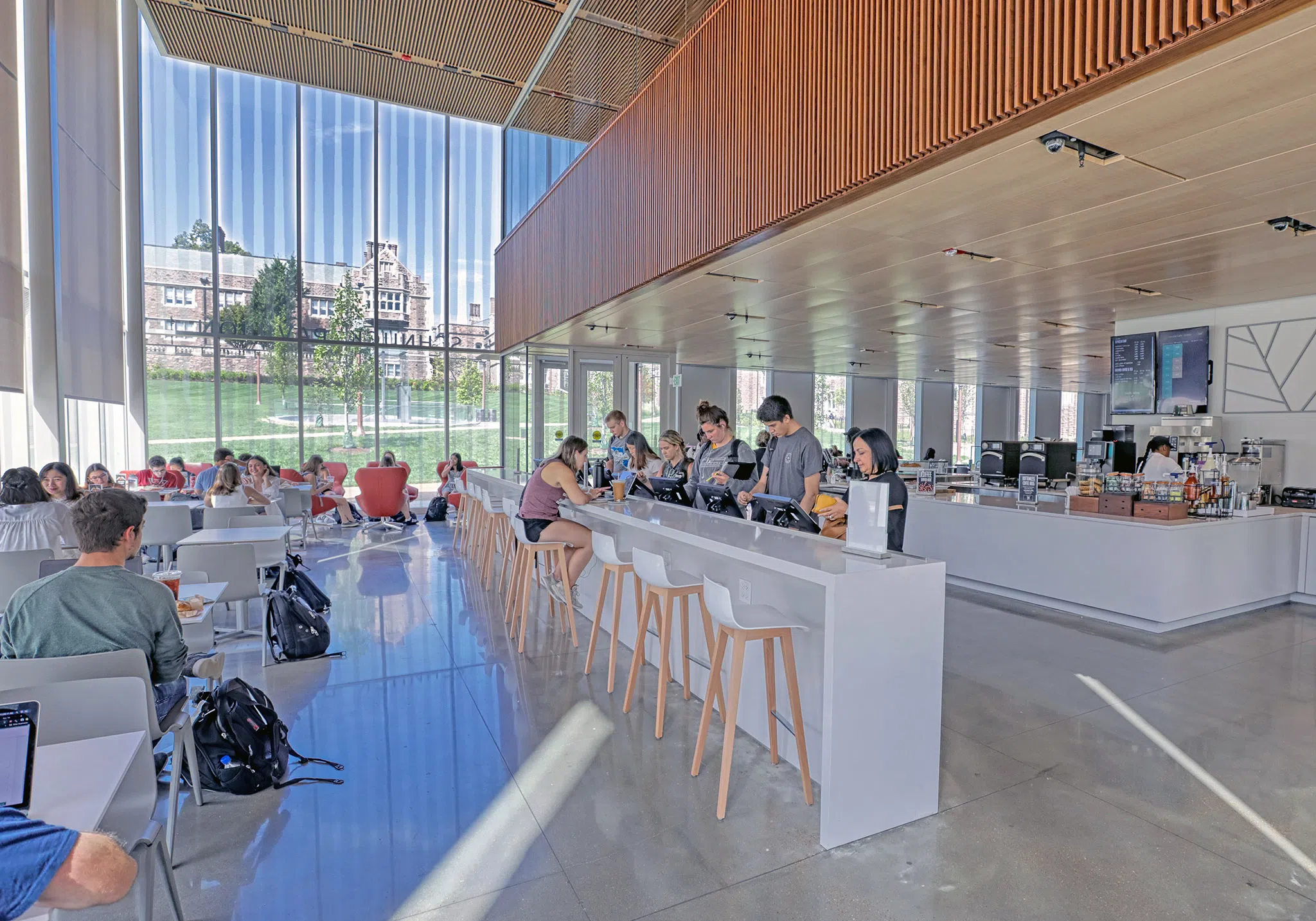Media Gallery
Sustainability at WashU
♻️ Sustainability at WashU
As a higher education institution, we understand the importance of becoming a national leader in sustainability through research, teaching, and day-to-day operations. While at WashU, our students will gain resources and knowledge of sustainable practices to take into their communities beyond WashU.
LEED Certification
WashU is proud to be home to 28 Leadership in Energy and Environmental Design (LEED) certified projects. In 2008, WashU committed to meet or exceed LEED Silver certification for all new construction and major renovation. Completed in 2019, the four new buildings that are part of the East End Transformation were recently awarded LEED Platinum certification, the highest level of green building certifications.
Sustainable Dining Practices
By using a combination of reusable or compostable food packaging and utensils, as well as sourcing ethically and locally produced food, WashU's Dining Services has made a strong commitment to sustainable food practices. These practices carry over into the every-day lives of students. To help increase WashU's food-waste diversion rate, you will find things like composting bins and water-filling stations scattered all across campus. As the first university in North America to ban the sale of bottled water, we recognize the impact of the actions of every individual and the importance of promoting these sustainable practices.
Office of Sustainability
With WashU acting as a "living learning laboratory," the Office of Sustainability collaborates with university partners and leaders to work towards a more sustainable campus. Through their research and educational programming, these sustainable actions are put in to practice on campus. You can learn more about their current research, goals, and programs on their website or even take their own virtual sustainability tour.
